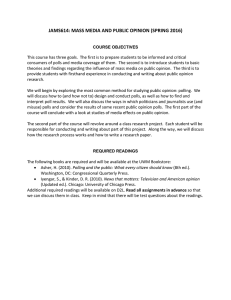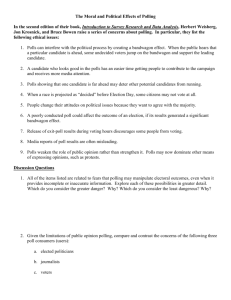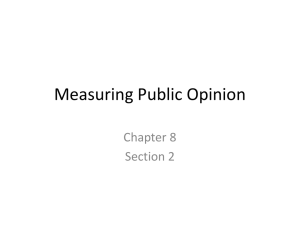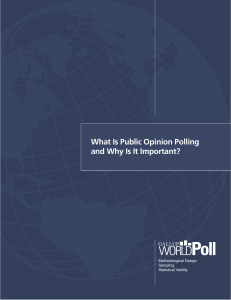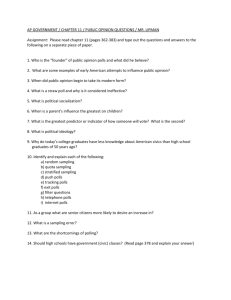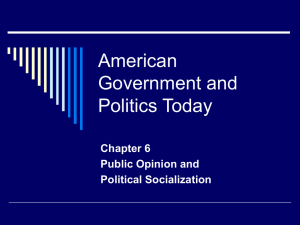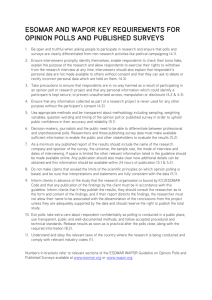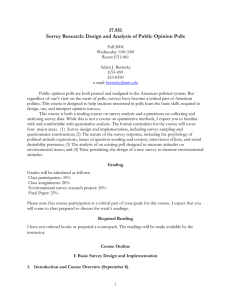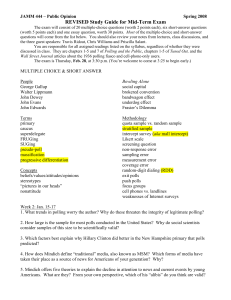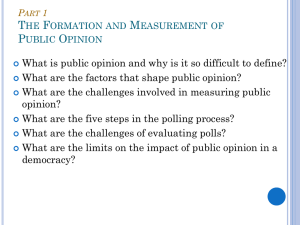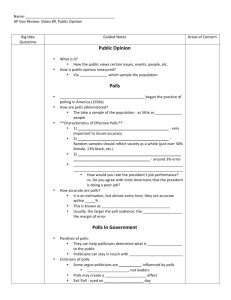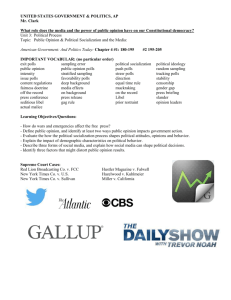Public Opinion Polls and the Role of the Media
advertisement
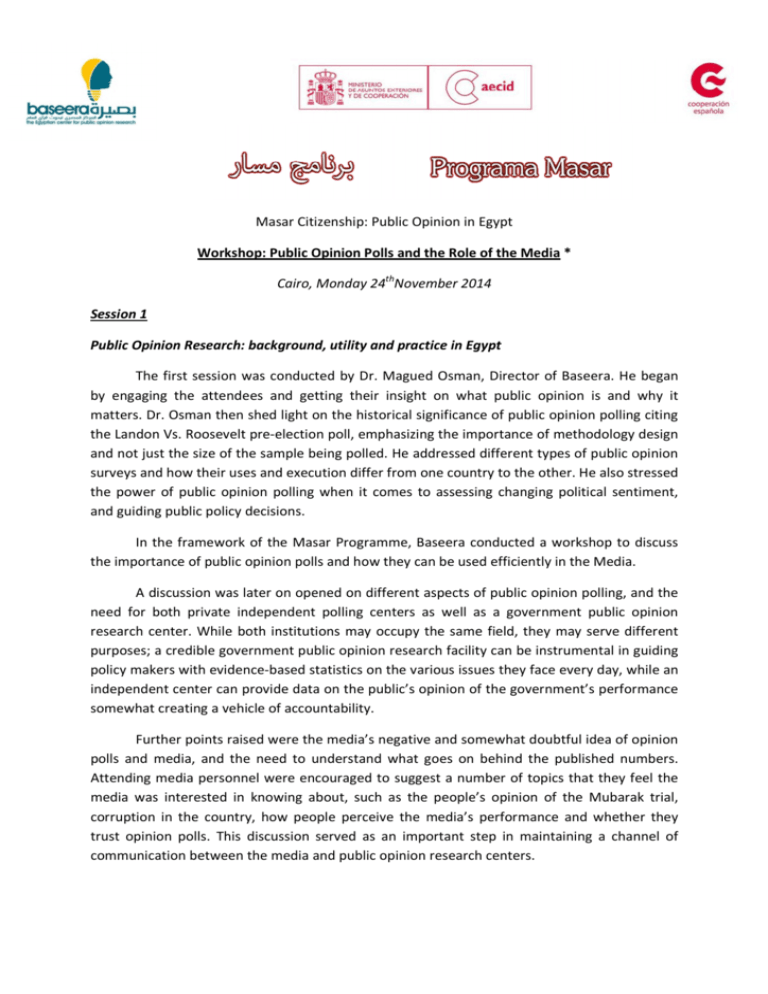
Masar Citizenship: Public Opinion in Egypt Workshop: Public Opinion Polls and the Role of the Media * Cairo, Monday 24thNovember 2014 Session 1 Public Opinion Research: background, utility and practice in Egypt The first session was conducted by Dr. Magued Osman, Director of Baseera. He began by engaging the attendees and getting their insight on what public opinion is and why it matters. Dr. Osman then shed light on the historical significance of public opinion polling citing the Landon Vs. Roosevelt pre-election poll, emphasizing the importance of methodology design and not just the size of the sample being polled. He addressed different types of public opinion surveys and how their uses and execution differ from one country to the other. He also stressed the power of public opinion polling when it comes to assessing changing political sentiment, and guiding public policy decisions. In the framework of the Masar Programme, Baseera conducted a workshop to discuss the importance of public opinion polls and how they can be used efficiently in the Media. A discussion was later on opened on different aspects of public opinion polling, and the need for both private independent polling centers as well as a government public opinion research center. While both institutions may occupy the same field, they may serve different purposes; a credible government public opinion research facility can be instrumental in guiding policy makers with evidence-based statistics on the various issues they face every day, while an independent center can provide data on the public’s opinion of the government’s performance somewhat creating a vehicle of accountability. Further points raised were the media’s negative and somewhat doubtful idea of opinion polls and media, and the need to understand what goes on behind the published numbers. Attending media personnel were encouraged to suggest a number of topics that they feel the media was interested in knowing about, such as the people’s opinion of the Mubarak trial, corruption in the country, how people perceive the media’s performance and whether they trust opinion polls. This discussion served as an important step in maintaining a channel of communication between the media and public opinion research centers. Session 2 How to best utilize public opinion polls and statistics in journalistic content? Dr. Hanan Girgis then delivered and moderated the second session where she explained the relationship between the media and public opinion research centers. The media serve as one of several mechanisms to disseminate information on public opinion to the broader population which otherwise might not have access to polls and surveys. In turn, the media also sometimes raise issues of interest that institutions such as Baseera can use as a starting point for public opinion surveys. Polling organizations such as Baseera aim for their part to provide an extra degree of analysis and context which serve to highlight trends in public opinion and enrich journalistic content. A lively discussion then tackled the ethics and guidelines of using public opinion statistics in journalistic content, and the key elements that journalists should look for in any survey or data they publish that will help them identify which are credible and which are biased surveys. Impact in Media The following media outlets reported on the event: Akhbarak.net Bawaba news *This activity was financed by the Spanish Agency for International Development Cooperation (AECID) in the framework of the Masar Programme aimed at supporting processes of democratic governance in the Arab world. For more information see http://www.aecid.es/ES/d%C3%B3nde-cooperamos/norte-de%C3%A1frica-y-oriente-pr%C3%B3ximo/programa-masar
